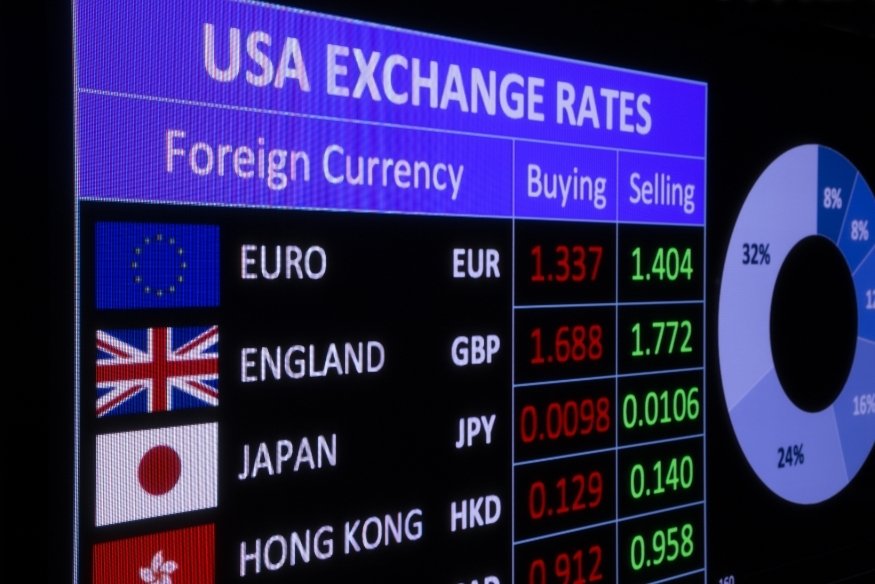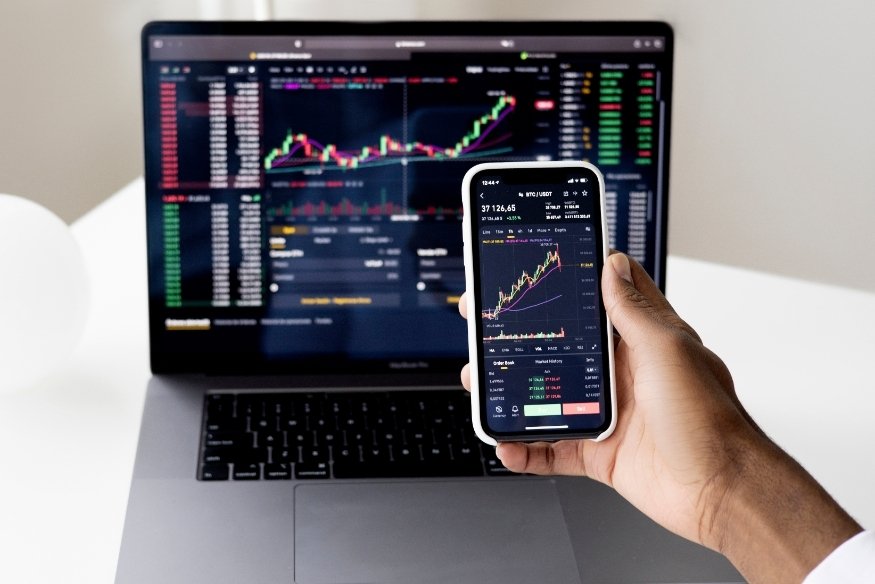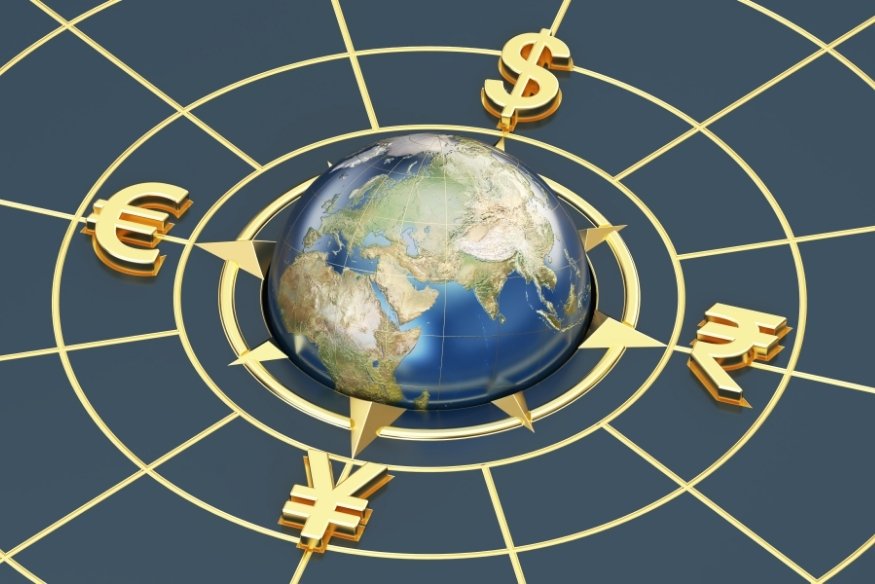In today’s increasingly global economy, understanding the currency exchange impact is essential for managing your personal finances wisely. Whether you’re shopping online, investing internationally, or simply planning a trip abroad, currency fluctuations can significantly influence your financial outcomes.
Exchange rates—the value of one currency compared to another—can shift daily based on economic, political, and market forces. These changes don’t just affect multinational corporations; they have real consequences for everyday individuals.
Smart financial planning includes keeping an eye on these variations and understanding how they might affect your savings, spending, or investments. By staying informed about the global financial landscape, you empower yourself to make better decisions and minimize potential losses tied to currency volatility.
Key Takeaways
- Understanding foreign exchange rates is key to managing your finances.
- Exchange rate fluctuations can impact your investments and savings.
- Staying informed about exchange rates can help in making better financial decisions.
- Effective financial management involves being aware of global economic trends.
- Knowledge of exchange rates can help you navigate international transactions.
Understanding Currency Exchange Rates

It’s key to know how currency exchange rates work in the global financial world. You must understand what affects these rates to make smart money choices.
What Determines Exchange Rates
Exchange rates are shaped by several things. These include supply and demand, interest rates, inflation, and economic activity. These elements work together in complex ways, leading to changes in currency values.
How Exchange Rates Fluctuate
Exchange rates change for many reasons. Two main reasons are:
- Supply and Demand Factors: The balance between the supply of and demand for a currency affects its value.
- Political and Economic Influences: Political stability, economic indicators, and monetary policy decisions also play a significant role.
Supply and Demand Factors
The value of a currency is greatly influenced by supply and demand in the foreign exchange market. When demand for a currency is high, its value tends to rise, and when demand is low, its value tends to fall.
Political and Economic Influences
Political events and economic indicators, such as GDP growth rates and inflation figures, can also impact exchange rates. For instance, a country with a stable political environment and strong economic growth is likely to see its currency strengthen.
The Euro and Its Role in Financial Stability: How Currency Exchange Impacts Everyday Life
The adoption of the Euro brought many changes to the financial landscape of countries that transitioned from national currencies. Becoming part of a broader monetary union reshaped how individuals and businesses manage their money, especially in the context of currency exchange impact.
From National Currency to the Euro: A Shift in Monetary Policy and Daily Transactions
The transition to the Euro around the early 2000s simplified cross-border trade and travel within the Eurozone. Individuals benefited from consistent pricing across countries, while businesses gained operational efficiency in managing international payments and contracts.
However, adopting a shared currency also meant adapting to centralized monetary policies. Local financial systems had to align with broader economic goals and interest rate strategies set by the European Central Bank.
The Euro’s Global Influence: Competing on the World Currency Stage
As one of the world’s leading reserve currencies, the Euro plays a pivotal role in international finance. Its value is shaped by a mix of economic indicators, geopolitical developments, and investor sentiment.
Euro vs. US Dollar: A Market-Defining Currency Pair
The relationship between the Euro and the US Dollar (EUR/USD) is closely watched by investors and traders. Fluctuations in this currency pair can significantly influence:
- Export competitiveness and global trade flows
- Import costs for energy, electronics, and raw materials
- Investor confidence in European versus American markets
A strong Euro can make exports more expensive but reduce the cost of imports. A weaker Euro, on the other hand, can help domestic industries thrive while increasing consumer prices on imported goods.
Euro vs. Regional Currencies: Economic Interdependence
The Euro’s exchange rate against neighboring currencies such as the Swedish Krona (SEK) and Norwegian Krone (NOK) also holds strategic importance for trade, especially in sectors like energy, machinery, and consumer goods.
| Currency Pair | Exchange Rate Drivers | Economic Impact |
|---|---|---|
| EUR/USD | Global economic trends and interest rates | Affects global trade, investment flows |
| EUR/SEK | Regional economic policies and inflation levels | Influences trade with Nordic partners |
| EUR/NOK | Oil prices and fiscal policy | Impacts commodity trade and regional pricing |
Being aware of these currency exchange impacts helps consumers, investors, and businesses make smarter decisions in a dynamic global economy.
Direct Currency Exchange Impact on Personal Finances

Changes in currency exchange rates can really impact your money. As rates change, so does the value of your money. This affects many parts of your personal finances.
Purchasing Power Changes
Exchange rate changes affect how much you can buy. For example, a stronger euro lets you buy more abroad. But a weaker euro means you can buy less.
This is especially true for Finnish families who travel or buy foreign products.
Savings and Debt Value Fluctuations
Changes in exchange rates also affect your savings and debt. If you save in a foreign currency, a good exchange rate can make your savings worth more in euros. But if you owe money in a foreign currency, rate changes can make it harder or easier to pay back.
How Currency Exchange Impact Affects Household Finances
Fluctuations in exchange rates don’t just affect corporations and international trade—they also influence household budgets and everyday financial decisions. The currency exchange impact can shape how families manage their money across several areas:
Travel Expenses
When planning trips abroad, changes in exchange rates can increase or decrease the real cost of travel. A weaker domestic currency means you’ll spend more in local currency to get the same amount of foreign money—raising the cost of hotels, dining, and activities abroad.
Imported Goods and Services
Household products, electronics, clothing, and even food items that come from other countries can become more expensive when the exchange rate shifts unfavorably. This can directly impact your monthly expenses, especially if your household depends on imported goods.
Foreign Savings and Investments
If you hold savings or investments in another currency—such as foreign stocks, ETFs, or offshore accounts—exchange rate fluctuations can affect their value when converted back to your domestic currency. A depreciation in your home currency may increase the value of foreign holdings, while appreciation may reduce it.
How Currency Exchange Impact Shapes Investment Performance
If you invest in international markets, the currency exchange impact can significantly influence your returns. Fluctuations in exchange rates affect how your foreign investments perform when their value is converted back into your local currency.
Stock Market Implications: Exchange Rates and Global Equities
When you invest in stocks from other countries, currency shifts can amplify or reduce your gains. For example, if you buy shares in a U.S.-based company and your home currency strengthens against the dollar, the converted value of those shares may decline—even if the stock itself performs well. On the other hand, if your currency weakens, your returns may appear higher once converted.
Tip: A diversified portfolio that includes both domestic and foreign equities can help balance these fluctuations.
Bond and Fixed Income Investments: Protecting Returns from Currency Volatility
International bonds and fixed-income securities are also sensitive to currency exchange impact. Interest payments and principal returns in a foreign currency may lose value if exchange rates shift unfavorably.
Investors often use currency hedging tools to reduce this risk, such as:
- Hedged bond ETFs
- Forward contracts
- Currency swap strategies
These tools can help preserve your returns and provide more predictable income.
Real Estate Investments: Local and Foreign Considerations
Real estate investments, whether domestic or abroad, are not immune to exchange rate changes. Purchasing property in a different currency can:
- Increase acquisition costs when your currency weakens
- Affect rental income if rents are paid in a foreign currency
- Change resale value based on currency performance
Foreign Property Investment Opportunities and Risks
Buying property internationally may offer attractive returns, but it’s vital to assess currency exposure. For instance, renting out a property in a currency that aligns with your own reduces risk. However, capital gains may still fluctuate when converting sales proceeds back into your home currency.
Currency Exchange and International Travel
For traveling abroad, knowing how to navigate currency exchange rates is key for a stress-free journey. Understanding exchange rates can help you stretch your trip budget further.
Planning Trips Based on Exchange Rates

Before you book your trip, check the current exchange rates for your destination. A good exchange rate can save you money, while a bad one might mean adjusting your plans. Use online tools or apps to track exchange rates and set alerts for when they’re right.
Smart Money Management While Abroad
Managing your money wisely while traveling abroad is crucial. Use a debit or credit card without foreign transaction fees. You can also exchange some money before leaving or withdraw local currency from ATMs when you arrive.
Best Payment Methods for Traveling Internationally
When traveling internationally, having different payment methods is essential. Credit cards are widely accepted, but having local cash for places that don’t take cards is smart. You can also use prepaid currency cards or mobile payment apps like Apple Pay or Google Pay.
| Payment Method | Acceptance | Fees |
|---|---|---|
| Credit Cards | Widely accepted | Foreign transaction fees may apply |
| Debit Cards | Widely accepted | Foreign transaction fees may apply |
| Prepaid Currency Cards | Accepted at most merchants | Load fees and ATM fees may apply |
| Mobile Payment Apps | Increasingly accepted | Transaction fees may apply |
Online Shopping and Cross-Border Purchases: Understanding the Currency Exchange Impact
With online shopping more global than ever, consumers frequently purchase goods from retailers in other countries. However, the currency exchange impact can significantly influence how much you actually pay—and whether you’re getting a good deal.
Timing Your Purchases: When Exchange Rates Work in Your Favor
If your home currency is strong compared to the seller’s, your purchasing power increases. Monitoring exchange rates before making larger international purchases can lead to noticeable savings. Conversely, buying during unfavorable exchange periods may result in paying more for the same item.
Tip: Use currency tracking tools or apps to help you decide the best time to shop.
Hidden Costs in Cross-Border Transactions
Besides the item price and exchange rate, there are several other costs to factor in:
- Foreign transaction fees charged by credit card providers or banks
- Dynamic currency conversion (DCC) fees, when you’re offered to pay in your home currency at checkout
- Shipping and handling fees that may be higher for international delivery
These hidden charges can reduce or eliminate any savings from favorable exchange rates.
VAT and Customs Charges: What You Should Know
When ordering from outside your economic region, goods may be subject to Value Added Tax (VAT) and customs duties upon delivery. This depends on the item’s origin and value.
| Transaction Type | VAT Applicable | Customs Duty |
|---|---|---|
| Within economic union | Usually not | No |
| Outside economic union | Yes | Yes, depending on product type and value |
Being aware of these rules helps you avoid surprises at the door and ensures you’re calculating the true cost of your international purchases.
By factoring in the currency exchange impact, as well as extra charges and delivery terms, you can make smarter decisions and truly maximize the benefits of online shopping across borders.
Currency Exchange Impact on Your Career: What Global Workers Should Know
In an increasingly connected world, the currency exchange impact goes beyond investments and travel—it can also shape your career opportunities and financial stability. Whether you work for a multinational company or remotely across borders, exchange rates can influence your income, benefits, and job security.
Working for International Employers: Exchange Rates and Job Security
If you’re employed by a company that operates globally, currency fluctuations can directly affect its bottom line. A stronger local currency can make exports more expensive, potentially reducing global competitiveness. This may lead to shifts in company priorities, reduced revenue, or even job restructuring.
Professionals in export-driven industries or global service roles should pay attention to exchange trends, as they may influence decisions related to hiring, project allocation, and compensation.
Salary Negotiations: Understanding Compensation in a Globalized Market
When negotiating salaries—especially with employers who deal in multiple currencies—it’s important to consider how currency conversion can affect your take-home pay. For instance:
- A salary denominated in a foreign currency may fluctuate when converted to your local currency
- Benefit packages or bonuses tied to performance in foreign markets may shift in value
Tip: When possible, negotiate compensation terms that are either pegged to a stable currency or include clauses to review payment adjustments based on currency fluctuations.
Remote Work and Freelancing: Managing Currency Risks
Remote work has opened doors to job opportunities across borders. However, many remote professionals are paid in currencies different from their home currency. This exposes them to currency exchange impact, where:
- Monthly income may rise or fall based on exchange rate changes
- Budgeting becomes more complex due to variable conversions
- Unexpected losses may occur when converting income back to your domestic currency
To protect your earnings, consider:
- Using multi-currency digital wallets
- Setting up threshold-based currency alerts
- Consulting financial advisors about income hedging strategies
Understanding how currency exchange impact affects your professional life allows you to plan smarter, negotiate better, and maintain greater control over your financial future—no matter where or how you work.
Business Owners and Currency Exchange Impact: Managing Risks and Seizing Opportunities

For business owners engaged in cross-border trade or global operations, the currency exchange impact can be both a risk and an opportunity. Understanding how currency fluctuations affect your pricing, costs, and competitiveness is essential to running a resilient business.
Import/Export Operations: How Currency Shifts Shape Business Costs
Exchange rates significantly influence the cost of goods and services traded internationally. A strong domestic currency can make imports cheaper, but reduces the appeal of your exports in foreign markets. Conversely, a weaker currency boosts export competitiveness but increases import costs.
To manage this, business owners often:
- Use hedging tools, such as forward contracts, to lock in exchange rates
- Adjust supplier contracts to include currency clauses
- Diversify sourcing and sales across multiple currencies to reduce dependency on a single one
International Pricing Strategies: Adapting to Currency Movements
When selling products or services abroad, aligning prices with exchange rate realities is crucial. Strategies include:
- Dynamic pricing models that reflect real-time exchange rate changes
- Local currency pricing to build customer trust and simplify transactions
- Bundled or value-based pricing that factors in possible currency shifts while maintaining profitability
Keeping your pricing flexible and competitive ensures your brand stays attractive in various markets, despite currency volatility.
Case Studies: Real-World Strategies for Managing Currency Risk
Many successful companies mitigate the currency exchange impact by diversifying income sources and leveraging financial instruments. Some examples of effective strategies include:
- Expanding into regions with complementary currency cycles
- Using multi-currency accounts to manage inflows and outflows more efficiently
- Incorporating currency options into long-term financial planning
These proactive approaches help protect margins, maintain cash flow, and reduce unexpected losses. Whether you’re importing supplies, exporting goods, or setting global prices, understanding the currency exchange impact gives you a strategic edge. It allows you to plan better, manage risk, and grow your business sustainably in a competitive global environment.
Hedging Against Currency Risks: Tools to Reduce the Currency Exchange Impact
Investing or conducting business internationally brings valuable opportunities—but it also introduces currency exchange impact risks. Currency value fluctuations can affect the return on your investments, the cost of international purchases, or even the profitability of global business operations. Hedging strategies help reduce that volatility.
Financial Instruments for Protection
Several financial tools can shield you from currency risks. Forward contracts let you set an exchange rate for future deals. Options allow you to choose when to exchange currency at a set rate. For more info, check out this research paper on currency management.
Diversification as a Currency Risk Strategy
Another powerful approach to managing the currency exchange impact is diversification. By spreading your investments across different asset types, markets, and currencies, you reduce the risk of being overly affected by fluctuations in any one currency.
Example: An investor holding both euro- and dollar-denominated assets may balance out losses in one market with gains in another, depending on how the currencies move.
Professional Support: Currency Management Services
Many financial institutions offer currency risk management services that include:
- Multi-currency bank accounts
- Personalized risk assessment
- Automated hedging solutions
Working with a financial advisor or banking specialist can help tailor a currency strategy that fits your financial goals and risk tolerance.
| Hedging Strategy | Description | Benefits |
|---|---|---|
| Forward Contracts | Lock in an exchange rate for a future transaction | Reduces uncertainty and protects against rate fluctuations |
| Currency Options | Right to exchange currency at a specified rate | Offers flexibility and potential upside in favorable markets |
| Diversification | Spread across different currencies and assets | Lowers reliance on any single currency, reducing volatility |
Digital Currencies and Traditional Exchange Rates: The Evolving Currency Exchange Impact
The rise of digital currencies is transforming how money moves globally. As adoption increases, so does the currency exchange impact, influencing everything from investment strategies to cross-border transactions. Understanding this shift is essential for anyone navigating the modern financial world.
Cryptocurrency Adoption Trends
Digital currencies such as Bitcoin, Ethereum, and stablecoins are gaining popularity among individuals and investors worldwide. Seen as both speculative assets and tools for diversification, these cryptocurrencies offer alternatives to traditional fiat-based investments.
Some retailers and service providers now accept digital currencies, expanding their practical use. This shift is gradually redefining the way value is exchanged and stored.
The Future of Currency Exchange and Digital Integration
As digital currencies continue to mature, they may begin to influence traditional exchange rate dynamics. The growing use of decentralized assets could create pressure on central banks and financial systems to modernize currency frameworks.
Potential developments include:
- Stablecoins pegged to fiat currencies reshaping how we transact internationally
- Decentralized finance (DeFi) platforms enabling direct currency swaps without traditional intermediaries
- Central Bank Digital Currencies (CBDCs) influencing the flow of money and potentially altering exchange rate behaviors
These shifts may lead to more transparent, fast, and low-cost international transfers, while introducing new volatility and regulatory challenges.
Regulatory Outlook and Emerging Opportunities
The legal landscape for digital currencies is still evolving. Many governments are developing clear frameworks for taxation, anti-money laundering (AML), and consumer protection. This regulatory progress is essential to foster innovation while maintaining financial stability.
Opportunities that may arise include:
- New business models in financial technology and global payments
- Cross-border investment solutions based on blockchain
- Currency-agnostic financial tools that reduce dependence on traditional exchange rates
Practical Tips for Managing Currency Exchange in Daily Life: Tools and Timing for Better Financial Outcomes

Getting the most value from your money in an interconnected world means mastering the currency exchange impact on everyday transactions. Whether you’re traveling, shopping online, or investing, knowing how to manage currency conversion helps you make informed financial decisions.
Best Practices for Currency Conversion: How to Optimize Every Exchange
When converting money, it’s essential to compare exchange rates across banks and currency services. Fees and hidden charges can make a significant difference in what you receive.
- Use online platforms to compare real-time rates and identify the best deals.
- Avoid exchanging cash at airports or high-traffic tourist areas, which often have less favorable rates and higher commissions.
- Consider using prepaid currency cards or multi-currency digital wallets for secure and budget-friendly spending abroad.
Apps and Tools for Exchange Rate Monitoring: Stay Informed in Real Time
Keeping up with currency movements is easy with digital tools that offer alerts, forecasts, and historical trends.
Popular apps for rate tracking:
- XE Currency – for real-time exchange rate data
- Google Finance – to monitor global financial news and currency trends
- Currency Converter Plus – user-friendly and helpful for quick comparisons
These tools help you act at the right time, minimizing currency loss and improving financial outcomes.
Timing Your Currency Exchanges for Maximum Value: When Strategy Pays Off
Currency values fluctuate frequently, and timing your exchange can yield significant savings.
- Monitor trends and news that affect currency strength.
- Use limit orders or forward contracts when planning large conversions to lock in favorable rates.
- Avoid last-minute exchanges unless necessary.
Comparing Exchange Services: Find the Best Fit for Your Needs
When selecting a bank or currency exchange service, analyze the actual rate offered and the associated fees. Even small differences can add up over multiple transactions.
| Institution | Exchange Rate | Commission Fee |
|---|---|---|
| Bank A | 1 EUR = 1.10 USD | 2.0% |
| Bank B | 1 EUR = 1.12 USD | 1.5% |
A better exchange rate with a lower fee can make a meaningful difference—especially for frequent or high-value conversions.
Conclusion: Using Currency Exchange Knowledge to Strengthen Your Financial Future
You’ve now gained a deeper understanding of how currency exchange rates influence your finances, from personal budgeting and investment strategies to online shopping and international travel.
The currency exchange impact can affect your ability to save, invest, or manage business expenses. Whether you’re handling small transactions or managing cross-border revenue, the key is being proactive and informed.
By staying current on exchange trends, comparing service options, and using the right financial tools, you can reduce risks and make smarter money decisions.
Use the tips and strategies from this guide to improve your currency-related decisions and safeguard your finances against volatility. Mastering exchange rates today means greater financial control tomorrow.









